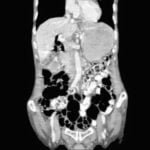
Screen yourself regularly ; Nip the evil in the bud.
Over the years I have observed as a physician that when a person becomes disabled due to health his near one’s even don’t support him beyond a certain period of time so take your health as a top priority , never underestimate being healthy.
Apart from avoidance of known harmful agents like smoking, alcohol, drug abuse the key to good health is avoidance of obesity, regular exercise and regular SCREENING.
Born we are mortal, we can not prevent death but we can add life to years and live happily .
Screen yourself regularly and nip the evil in the bud .
Screening can help doctors find and treat several types of diseases early. This is especially true of Diabetes, Dyslipidemia and various cancers.
Checking for cancer (or for conditions that may become cancerous) in people who have no symptoms is called screening
Early detection is important because when abnormal tissue or cancer is found early, it may be easier to treat than an advanced disease.
By the time symptoms appear, cancer may have begun to spread, and it becomes an uphill task for the patient, relatives and the treating physician.
In a report published by the National Cancer Institute in the USA, the estimates of the premature deaths that could have been avoided through screening vary from 3% to 35%, depending on a variety of assumptions. Beyond the potential for avoiding death, screening may reduce cancer morbidity since treatment for earlier-stage cancers is often less aggressive than that for more advanced-stage cancers.
There are seven warning signs of cancer described in the literature, based on published reports and various studies
1.Changes in bowel or bladder habits
2.A sore that doesn’t heal.
3.Unusual bleeding or discharge
4.Lumps or thickened areas in the breast, testicles, or elsewhere
5.Indigestion or difficulty swallowing
6.A change in the size, colour, shape, or thickness of a wart, mole, or mouth sore
7.A cough or hoarseness that doesn’t go away
The following symptoms may also signal some types of cancer:
•Persistent headaches
•Unexplained loss of weight or loss of appetite
•Chronic pain in bones or any other areas of the body
•Persistent fatigue, nausea or vomiting.
•Persistent low-grade fever, either constant or intermittent
•Repeated infection
Always consult your doctor if the above symptoms are present and follow their advice.
The doctor may advise you certain tests depending upon his clinical suspicion, and the test may vary as follows
a) Direct or assisted visual observation is the most widely available examination for the detection of cancer. It is useful in identifying suspicious lesions in the skin, retina, lip, mouth, larynx, external genitalia, and cervix.
b)The second most available detection procedure is palpation to detect lumps, nodules, or tumours in the breast, mouth, salivary glands, thyroid, subcutaneous tissues, anus, rectum, prostate, testes, ovaries, and uterus and enlarged lymph nodes in the neck, axilla, or groin.
c)Internal cancers require procedures and tests such as endoscopy, x-rays, MRI, or ultrasound. Laboratory tests, such as the Pap smear or the Fecal occult blood test have been employed for detection of cervical and colorectal cancers respectively.
Studies have shown that some people have a higher risk of cancer development and they need to be extra cautious.
One of these indications is when the patient has a strong family history of cancer (in two or more first-degree relatives); increasingly, as genetic mutations are found to be associated with specific cancers, high-risk individuals can be identified through genetic testing even.
Amongst common cancers, colon cancer screening has been found to be a significant factor in affecting the prognosis and survival
American College of Gastroenterology recommends that screening for colorectal cancer and adenomatous polyps should start at the age of 50 in asymptomatic men and women.
Also, individuals with any of the following colorectal cancer risk factors should undergo colonoscopy at an earlier age, and more frequently than average risk individuals:
1.Those with a family history of colorectal cancer or polyps
2.Those with a family history of a hereditary colorectal cancer syndrome such as familial adenomatous polyposis (FAP) or hereditary non-polyposis colon cancer (HNPCC)
3.Those with a personal history of chronic inflammatory bowel disease (ulcerative colitis or Crohn disease).
The patients with ulcerative colitis are prone to develop malignancy, and it depends upon the extent and duration of the disease.The patient must have a regular colonoscopy for the early detection of these cancers.
Best wishes to all.
Click to Join the mailing list of HealthGuide
Join the mailing list!
Get the latest articles delivered right to your inbox!





